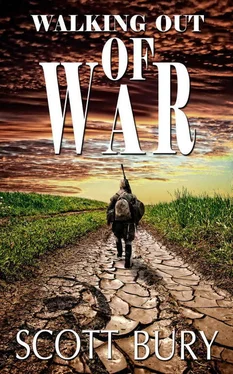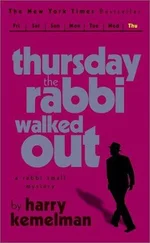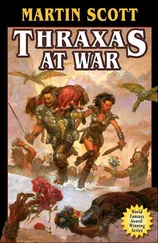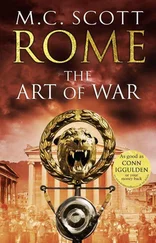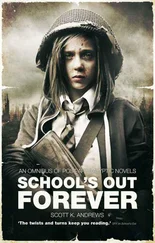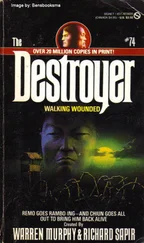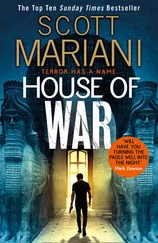“Well, the French are nominally in charge of this camp. Not that I ever see one of them around here, doing anything useful. Look, Bury, if you want to be useful to me, you can help me communicate with the refugees. Can you do that?”
“Yes, sir.”
“Good.” The commandant turned to the corporal who was his secretary. “Get him some decent clothes and put him on the roster as an official civilian interpreter attached to U.S. command. I don’t want the Russkies getting their hands on him.” He went back in his office.
Maurice knew that the commandant knew he wasn’t French. He also realized he had been holding his breath.
“Come on, Bury,” said the corporal and led him back to the outer office.
At the desk, Maurice pulled out a piece of paper from the secret pocket he had made inside his shirt, then unfolded the tattered, battered document. “You see? I am Canadian. Citizen of the Dominion of Canada.”
The corporal studied the document. “Okay, so you’re Canadian. But with that accent, don’t think Ivan won’t be trying to take you back home. The Yalta Conference says we gotta let Uncle Joe take all his people back where they came from. Doesn’t matter what they want. Orders are orders.” He held up a hand. “Don’t worry. The colonel said he wants you here, so you’ll stay here.” He scribbled a note and handed it to Maurice. “Go see the quartermaster for some new clothes. They won’t be a uniform, but they’ll be army issue and clean. Then you can come to the enlisted men’s mess for supper. Okay?”
“Thank you,” said Maurice, pocketing his birth certificate and the corporal’s note. He did not know what else to say.
That evening, Maurice sat at one end of a table at the side of the Americans’ enlisted mess. It was the best meal he had had in months—in fact, in over a year, since before the Soviets had caught him outside his mother’s house. There were huge joints of ham, and a mountain of mashed potatoes and beans. Maurice ate until he could not swallow another mouthful.
His life took on a new pattern then. He rose early and washed alongside the GIs. Then, shaved and feeling better than he had in years, went to the commandant’s office. He would translate various refugees and local officials for Corporal Knight, the commandant’s secretary, and occasionally, Commandant Whitney-Coates himself.
Maurice ate with the GIs, listening carefully to improve his command of English. He laughed when they did, stood when they did, and gradually grasped some of their slang. He became friends with Corporal Knight, who began to call him “Morrie.”
And during a slack period in the office, when there were no pressing documents to translate for the commandant, Maurice took some spare stationery—the Americans always had much more of everything than they needed—and wrote a letter to his father.
Tato,
I am well. Other than losing a few teeth, I have been unhurt in the past year, and I am now in a safe location, working for the American army in Austria.
Returning to Canada will take some time, apparently. I need to get permission to travel within Austria and then to leave Europe for Canada. You may need to find a lawyer to get some of the necessary documents and permissions in Canada.
Please write to Mama to let her know that I am well.
Love, Maurice
He wrote the return address as “Landeck UNRRA D.P. Camp, Landeck, Austria.” But he was careful to write only Mama,” not “in Ukraine” or “in Ternopyl”—not to include information that would allow the Soviets to tie him to Ukraine or his stint in the Red Army. He knew they would be happy to force him back to Ukraine, and from there, Siberia or a firing squad.
Mail took weeks to travel across the ocean in the postwar chaos. Maurice had little to do but wait.
When a letter came back with a Canadian postmark, it was not from his father, but from his mother’s sister, Eudora—Yevdokia in Ukrainian.
Dear Maurice,
We are so happy to learn that you are alive and well. It has been years since we heard any news from Ukraine that we could trust.
Your father and I spoke with a lawyer. He will apply to the Department of the Secretary of State for your repatriation as a native-born citizen.
This will take some time. We will have to get a copy of your birth certificate from the Province of Quebec, which will take some weeks or months. Also, you will need a sponsor who will pay your transportation costs and pledge to support you for five years.
We will do what we can to bring you home.
Do you have any news of your mother? We have not received any mail from Ukraine for years.
Love, Evdokia.
Maurice had to wait. But now, he could keep busy, translating between the American Army, the Ukrainian and other D.P.s, and the Austrians in the town.
Landeck, April 1946
Maurice spent over a year at Camp Landeck, where refugees—called “displaced persons” by the United Nations—streamed into the camp. Volunteers and soldiers erected more barracks and tents. Trucks brought food and other supplies from donors in the U.S., Canada, England. But there was never enough.
The commandant and officers talked about “repatriating” the refugees—sending as many back home as possible. For the refugees from Czechoslovakia, Romania, Poland, Austria and Germany, that meant hope. For the majority who had fled from Ukraine, Belorussia and Russia, from the Baltic countries and even from eastern Poland, it was pure terror.
Ukrainians began to flee the camp, heading west. A tent would disappear in the night; a corner of a barracks would be empty without any warning. Ukrainians would huddle to share rumors, without ever being sure that they had a shred of truth. “The Russians are rounding up Ukrainians all around, just loading them onto trucks. They don’t even care if they’re keeping families together.”
“They’re sending people to Siberia. Thousands at a time.”
“They drove a group in a truck to the forest and shot them all. Just like in the Katyn Forest.”
“That was Poland.”
“The British forced the Cossacks to surrender to the Red Army, and they’ve shipped them all to Siberia.”
“Didn’t they come from Siberia?”
“Not from forced labour camps!”
“I heard that the Communists told the Americans to turn over a group of people they said had escaped from jail. The American army put them all in a truck and were driving them to Russian territory, but the driver spoke Ukrainian. His parents had emigrated to America. When he heard the prisoners’ cries, he let them all go.”
“When did this happen? Where?” Everyone wanted to know who this Ukrainian-American GI was. Everyone wanted to be in his care. The rumour-spreader could only shrug.
One dark, wet morning in April, Maurice arrived at the commandant’s office just before two officers, one in a splendid French uniform, the other in the brown uniform with red accents of a Soviet political officer. Heart hammering, Maurice followed them into the commandant’s office.
“Wait outside, Bury,” said Corporal Knight, the commandant’s secretary. “These officers speak English.” Maurice saw the smug look on the Russian’s face as he took out papers from a leather satchel. Then the door closed.
Maurice walked outside, but his knees would not hold him up past the porch. He sat on the steps, staring at a French-made staff car with U.N. markings on the fenders.
A group of Ukrainian men and some women gathered around the commandant’s office. They saw the car in front. One man wearing a battered hat shouted “We won’t go back to Russia!”
The crowd repeated him, and it turned into a chant. “We won’t go back! We won’t go back!”
Читать дальше
